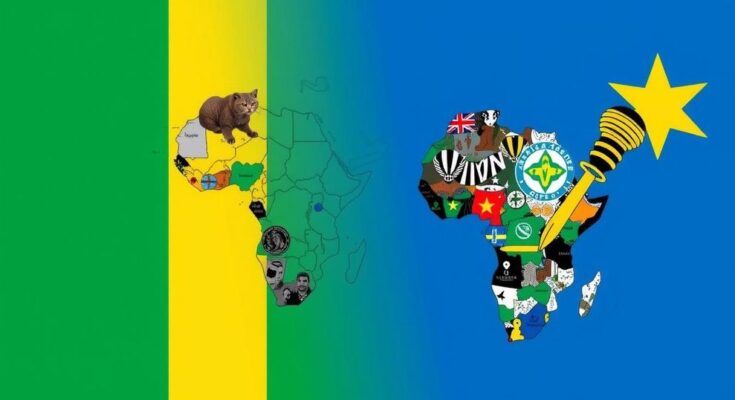Rwanda is committed to the Luanda peace process, addressing security crises related to the FDLR and M23 rebels, as stated by Minister Amb Olivier Nduhungirehe, who denied troop deployment to support the rebels and called for direct talks to resolve underlying conflicts.
Ambassador Olivier Nduhungirehe, Rwanda’s Minister of Foreign Affairs and International Cooperation, reaffirmed the country’s commitment to the Luanda peace process aimed at addressing regional security issues. Speaking during a BBC Focus on Africa interview on November 4, he refuted allegations of Rwandan troop involvement with the M23 rebel group in the eastern Democratic Republic of Congo (DRC). He stated, “We are bound by what we say and we signed in Luanda,” emphasizing the creation of a harmonized plan for the neutralization of the FDLR and improving Rwanda’s security measures. The Luanda process is an initiative supported by the African Union, initiated in mid-2022, to mitigate tensions between Rwanda and DRC which escalated due to conflict between Congolese forces and M23 rebels. Ambassador Nduhungirehe clarified that claims made by the Congolese government regarding the withdrawal of Rwandan troops were unfounded, reiterating that Rwanda seeks agreements that align with its security interests. He noted that current troop engagements focus solely on neutralizing the FDLR, a group composed of individuals linked to the 1994 Rwandan genocide. Moreover, he asserted that Rwanda reserves the right to legitimate defense measures in response to ongoing threats, particularly from the FDLR. He also highlighted the seriousness of public threats made by DRC officials against Rwanda and the necessity of Rwanda’s border security initiatives. Ambassador Nduhungirehe addressed the M23 crisis as an extension of longstanding issues surrounding the marginalization of the Congolese Tutsi community, emphasizing that the DRC government must engage the M23 in direct dialogue. Concerns surrounding the FDLR’s integration into the Congolese military remain a point of contention for Rwanda, with Nduhungirehe underscoring that the group poses a threat not just to Rwanda, but to the broader Great Lakes Region.
The Luanda peace process is critical in addressing unresolved tensions between Rwanda and the Democratic Republic of Congo, largely stemming from conflicts involving the M23 rebel group. Initiated in 2022, this African Union-backed initiative aims to create stability in the region. Ambassador Nduhungirehe’s statements underscore Rwanda’s commitment to peace while simultaneously addressing security concerns related to the FDLR, a militia that poses threats rooted in the genocide against the Tutsi in 1994. The ongoing hostilities highlight underlying ethnic tensions and the need for dialogue in pursuing a lasting resolution.
In summary, Ambassador Olivier Nduhungirehe reiterated Rwanda’s adherence to agreements made under the Luanda process while denying allegations of military support for the M23 rebels. The focus remains on protecting national security through targeted defensive measures against groups like the FDLR, which pose significant threats to Rwanda and the region as a whole. The minister emphasized the importance of direct dialogue between DRC and the M23 to address the deep-rooted issues contributing to ongoing conflicts.
Original Source: www.newtimes.co.rw




